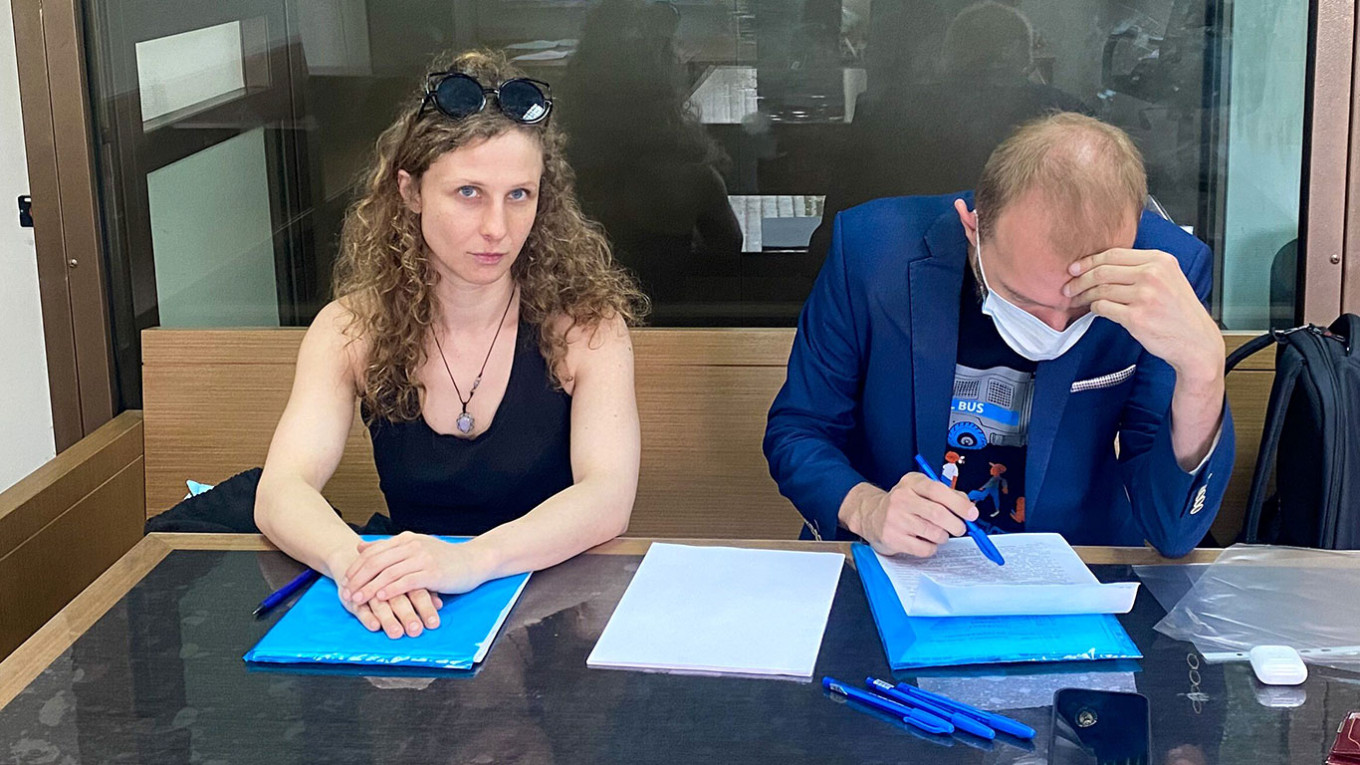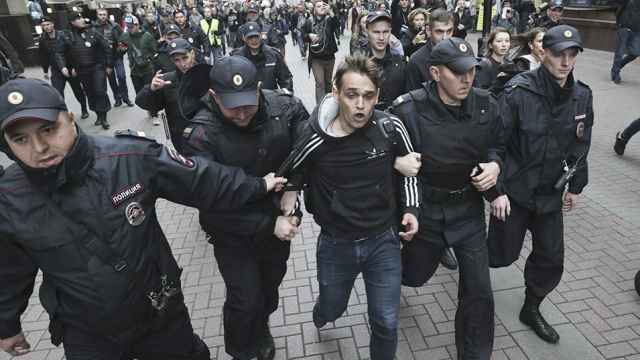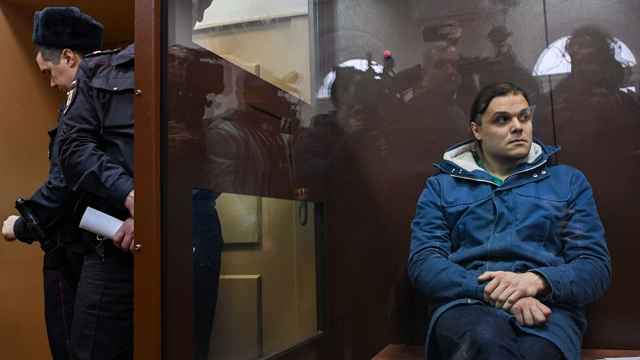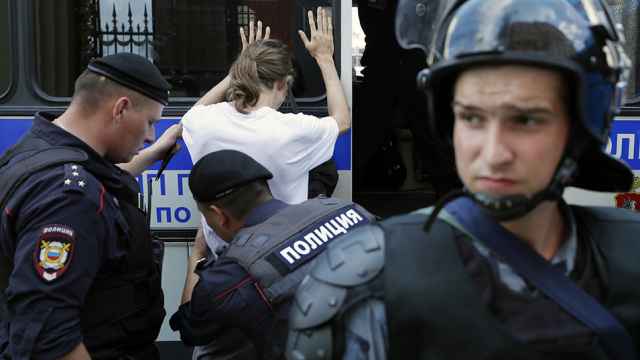Veteran Pussy Riot member Maria Alyokhina has been sentenced to one year of “restricted freedom” for promoting January protests in support of jailed Kremlin critic Alexei Navalny, the Apologia of Protest legal aid group reported Friday.
Alyokhina is one of 10 opposition figures accused of violating coronavirus restrictions on mass events by calling for the Jan. 23 protest that saw thousands take to the streets in Moscow and dozens of other Russian cities.
Moscow’s Preobrazhensky district court found Alyokhina guilty of “inciting violations of sanitary restrictions,” citing her tweet that called for the Jan. 23 protest, Apologia of Protest reported, citing lawyer Daniil Berman.
Under the so-called “restricted freedom” sentence, Alyokhina is forbidden from leaving her apartment from 10 p.m. to 6 a.m., leaving Moscow or attending mass events. She will also be required to check in with criminal inspectors twice a month.
Alyokhina, who has been under house arrest since Jan. 29, pleaded not guilty to the charges.
The Pussy Riot member is best known for her role in the group’s “Punk Prayer,” the provocative February 2012 protest in neon balaclavas at Moscow’s Christ the Savior Cathedral. She and fellow member Nadya Tolokonnikova spent two years in a prison colony over the performance.
In her final court statement, Alyokhina said that in the nearly 10 years that have passed since her first criminal case, “a criminal offense for one's politics is no longer shocking content, but has become part of the morning news.”
Apologia of Protest said it plans to appeal the verdict.
State prosecutors had requested a sentence of two years of “restricted freedom.”
Last month, fellow Pussy Riot member and Alyokhina's partner Lucy Shtein received a similar sentence in what is commonly referred to as the “sanitary case.” Cose Navalny ally Lyubov Sobol was sentenced to 1.5 years of “restricted freedom” on the same charges, while Navalny’s brother Oleg was handed a one-year suspended sentence.
The “sanitary case” verdicts come amid an unprecedented crackdown on Navalny’s movement, with his political and activist networks both being outlawed as “extremist” groups in June and dozens of affiliated websites being blocked.
Navalny himself is serving a 2.5-year prison sentence for breaking probation terms, a verdict that he says was politically motivated following his nerve-agent poisoning last August.
A Message from The Moscow Times:
Dear readers,
We are facing unprecedented challenges. Russia's Prosecutor General's Office has designated The Moscow Times as an "undesirable" organization, criminalizing our work and putting our staff at risk of prosecution. This follows our earlier unjust labeling as a "foreign agent."
These actions are direct attempts to silence independent journalism in Russia. The authorities claim our work "discredits the decisions of the Russian leadership." We see things differently: we strive to provide accurate, unbiased reporting on Russia.
We, the journalists of The Moscow Times, refuse to be silenced. But to continue our work, we need your help.
Your support, no matter how small, makes a world of difference. If you can, please support us monthly starting from just $2. It's quick to set up, and every contribution makes a significant impact.
By supporting The Moscow Times, you're defending open, independent journalism in the face of repression. Thank you for standing with us.
Remind me later.






